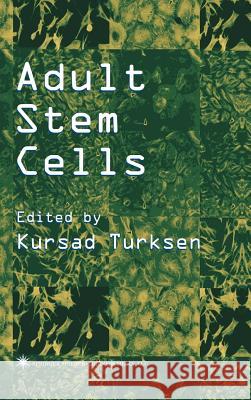Adult Stem Cells » książka
Adult Stem Cells
ISBN-13: 9781588291523 / Angielski / Twarda / 2004 / 346 str.
Studies on stem cells have been attracting intense scientific and p- lic attention, not only because of controversies surrounding the use of embryonic stem cells but also because of very provocative data that have been emerging on adult stem cells. Much of the public attention and debate has been focused on the possibility that adult stem cells may be used as a substitute for human embryonic stem cells or as a justification for stopping work on them. This has somewhat dim- ished attention on very heated scientific debates that take us to the very heart of how the concept of stem cells is perceived. To this author, the latter debates have not been unlike certain philosophical debates of the last century. Since the seminal studies of Till and McCulloch in the 1960s, the popular paradigm on adult stem cells has been that lineage-restricted stem cells are derived from pluripotent stem cells very early during development. To many, and consistent with much data, the restriction to particular lineages was considered absolute. In other words, there was a sense of determinism in the stem quality of particular stem cells: once they were allocated, they were programmed to specific roles in a given tissue. Furthermore, some adult tissues were considered devoid of detectable stem cell presence or activity.











